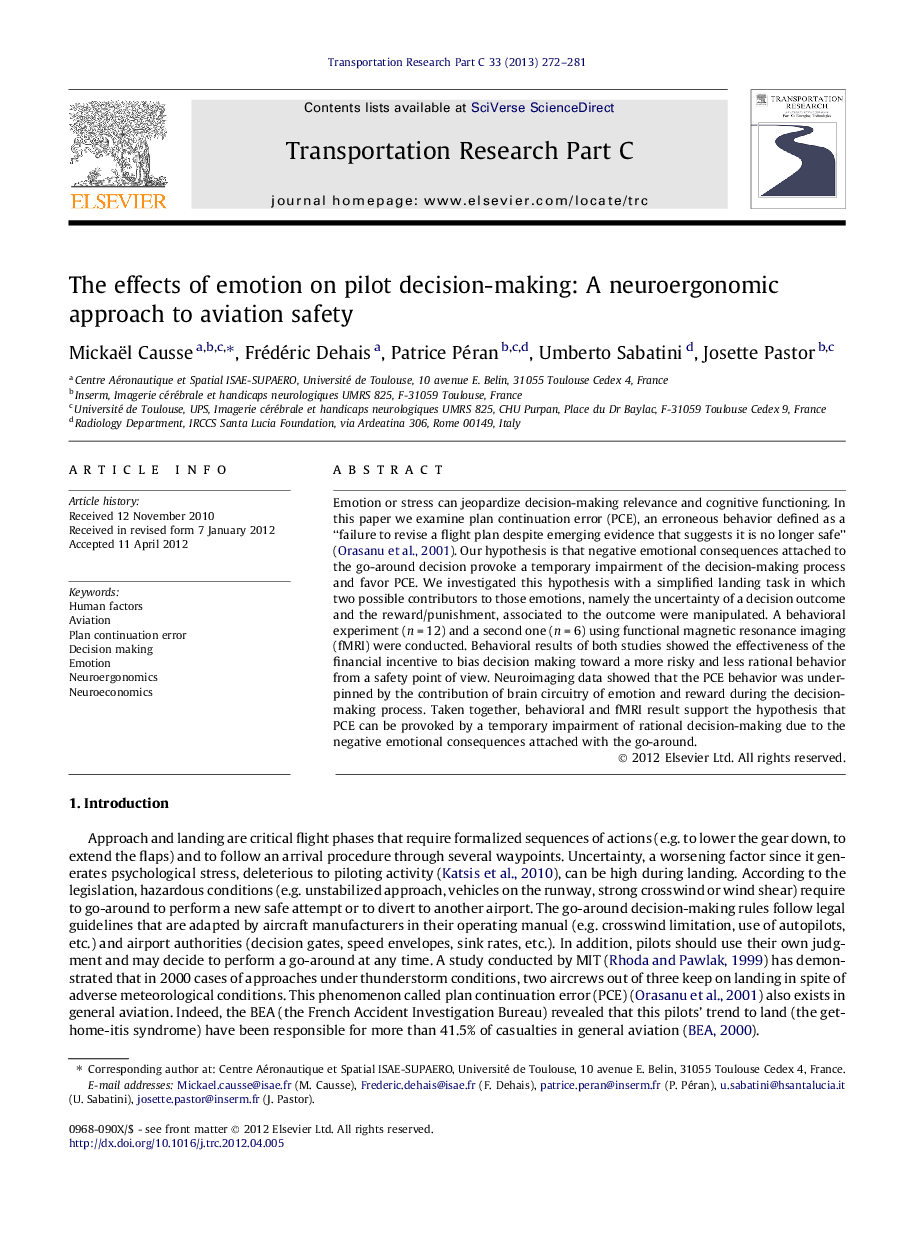| Article ID | Journal | Published Year | Pages | File Type |
|---|---|---|---|---|
| 526522 | Transportation Research Part C: Emerging Technologies | 2013 | 10 Pages |
Emotion or stress can jeopardize decision-making relevance and cognitive functioning. In this paper we examine plan continuation error (PCE), an erroneous behavior defined as a “failure to revise a flight plan despite emerging evidence that suggests it is no longer safe” (Orasanu et al., 2001). Our hypothesis is that negative emotional consequences attached to the go-around decision provoke a temporary impairment of the decision-making process and favor PCE. We investigated this hypothesis with a simplified landing task in which two possible contributors to those emotions, namely the uncertainty of a decision outcome and the reward/punishment, associated to the outcome were manipulated. A behavioral experiment (n = 12) and a second one (n = 6) using functional magnetic resonance imaging (fMRI) were conducted. Behavioral results of both studies showed the effectiveness of the financial incentive to bias decision making toward a more risky and less rational behavior from a safety point of view. Neuroimaging data showed that the PCE behavior was underpinned by the contribution of brain circuitry of emotion and reward during the decision-making process. Taken together, behavioral and fMRI result support the hypothesis that PCE can be provoked by a temporary impairment of rational decision-making due to the negative emotional consequences attached with the go-around.
► In a neuroergonomic approach, a landing task was submitted to participants in fMRI scanner. ► A financial incentive was used and led to an increase in risky decisions under high uncertainty. ► Increased risk-taking was concomitant to an enhanced activity of “emotional” brain areas. ► The emotion associated with the go-around decision might induce plan continuation errors.
